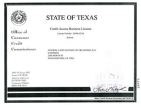What is a Savings Account?
Everyone knows that saving money is important, but not everyone knows how to start planning for the future. That's where your savings account comes in! What is a savings account, and why is it such a great way to build your future fortune? We're here to explain the benefits of savings in simple terms, so you can start collecting interest!

Why Should I Open a Savings Account?
Between checking accounts and retirement funds, you might feel like your paycheck is being split into a million pieces. So, why invest extra money into a savings account? Savings account interest typically pays more than a checking account, which means you get extra bang for your buck. The drawback is that you are limited in the number of transactions that you can perform every month, due to federal regulations. However, this can actually be a good thing for long-term savings. If you are building a rainy day fund, you'll feel less tempted to withdraw money for splurges with your funds in a savings account. And if you're trying to save money for a vacation or a downpayment, you can reach your goal faster from the higher interest accrued.
What is Interest?
When you open your bank account, you start earning interest - but what is it? Interest is the money that the bank gives you as an incentive to keep your money there. This is one way that different banks compete for your business, which is why it's such a good idea to shop around when deciding where to open your account. Additionally, there are two types of interest to consider: simple and compound. Simple interest is paid out based on the money that you originally had in the bank. Compound interest pays based on your original amount plus interest, which means you earn interest on your interest! Compound interest is more common, and also preferable if you want to earn money quickly.
What is the Best Savings Account?
While there is no best savings account for everyone, you can find the best savings account for your particular needs. Here are a few of the most common options:
- Plain Savings Account: Linked to your checking account, this savings account allows you to easily shift money between your bank accounts - while gaining interest on all of them.
- Tiered-Rate Account: If you have a high balance, a tiered-rate account might be for you. This account offers higher interest rates for higher balance levels.
- Holiday Savings Accounts: If you need money by a certain date, a Christmas club or holiday savings account might do the trick. These accounts encourage more frequent deposits, but double check the rules about withdrawal.
- Health Savings Account: HSAs are offered for those with high-deductible health insurance plans. Funded with pre-taxed dollars, this savings account is used for medical expenses - though unused funds can be used toward retirement as well.
What Other Factors Influence My Savings?
The average person can choose a standard savings account and reap tons of benefits, but if you find yourself in the following categories, you might prefer different options that are available to you:
- Children: Some banks offer accounts created for little ones who are just learning how to save. Look for accounts with no minimum deposit requirements or monthly fees, and consider rolling over the account to a CD or bond over time.
- Non-Citizen: If you have citizenship in another place, consider opening an account with a global bank that has locations in both of your countries of residence. This can make the process a lot easier, but be sure to double check the paperwork that you'll need to open the account.
- Expats: What if you're an American living abroad? You might want a local account for simplicity's sake. There's no legal issue with maintaining an account overseas as long as you choose a bank that complies with the Foreign Bank and Financial Account requirements - so do your research!
